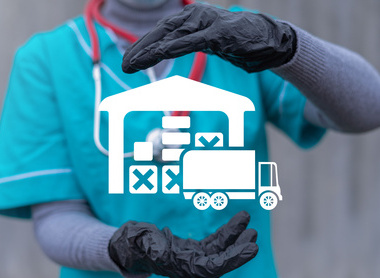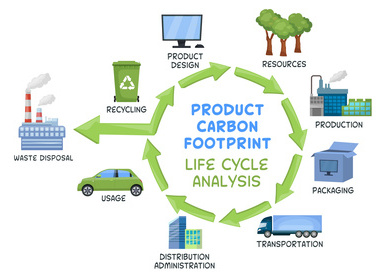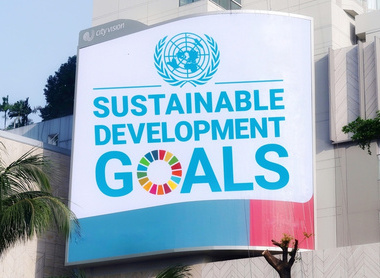Sustainability in Orthopaedics

‘Sustainability’ in simple terms means the ability to maintain a process continuously over time. We apply the term to our workforce where recruitment and retention of colleagues is essential and to our training practices which need to move with the times. We also need to consider financial and social sustainability whilst recognising that environmental sustainability is of ever increasing global concern.
NHS England published 'Delivering a net zero National Health Service' in July last year: 4% of England’s total carbon footprint belongs to the NHS and our specialty accounts for 20% of that 4%. There is an onus for members of the BOA to sit up, take note and effect change.
Read more on sustainability in orthopaedics
The terms ‘carbon footprint’, ‘climate neutral’ and ‘net zero’ are widely used but their precise meaning is often less clear.
The carbon footprint is the net impact of a process or company in terms of its CO2 emissions.
Climate neutral includes any carbon offsetting a company does. Offsetting is where a company funds projects that lower or sequester CO2, for instance planting trees, which could mean that they have only offset their emissions and not reduced them.
Net zero means cutting emissions to as low as possible which is clearly different and ‘greenwashing’ is the term applied when you are persuaded that a company is net zero when it is either actually at best climate neutral or at worse making false claims.
Although the goal of achieving a ‘net zero’ NHS by 2040 seems almost overwhelming, there are some areas where we as a group of clinicians can influence change.
The broad principles we can follow are to reduce, reuse and recycle and we can all immediately see there are some easy gains and also some real challenges.
For instance digital solutions which exploded during the COVID-19 pandemic allow remote patient consultations which then reduce patient travel and CO2 emissions. Digital tools lead us onto the likely positive impact of machine-based learning (AI) on our practice. It is already making inroads into orthopaedic practice and we need to be proactive in monitoring its progress.
We have to challenge areas that have become embedded in our day to day practice and understand the carbon impact of what we do. Rizan et al’s paper gives an insight to cumulative carbon footprints for various surgical procedures which uniquely encompasses all the products including disposables used. The top carbon producing procedure was TKR: they noted that 54% of the total carbon footprint of the products used related to the use of single use items including drapes and gowns. How do we reduce the use and recycle these products? Whilst we are asking questions here are some more: do we always need energy hungry conventional laminar flow? Can we operate outside the theatre environment as the BSSH suggest? How many staff are required for a safe and effective surgical team?
So going forward what will the BOA do?
Our pledges are that:
- We will strive to embed sustainability into UK orthopaedic practice.
- We will aim to include sustainability in the GMC T&O syllabus.
- We will support the dissemination of knowledge and research in sustainability.
- We will provide guidance on managing change in clinical practice driven by data gathering.
- We will provide feedback on the impact of these measures.
Below are a number of resources focusing on sustainability with relevance to healthcare and specifically the surgical specialties
Reducing the T&O carbon footprint
Read a selection of articles from JTO and Orthopaedics Online that focus on how healthcare and specifically the surgical specialties can reduce their carbon footprint.
Reuseables
There is a drive to move away from single use plastics to reusable textiles in the medical industry. Please find a selection of articles published in JTO and Orthopaedics Online that focus on the use of reusables in T&O.
Supply chain
Read a selection of articles from JTO and Orthopaedics Online that look at how we can drive a more sustainable supply chain.
Recycling
Recycling initiatives to aid us in being more environmentally friendly within operating theatres and our care settings.
What is a life cycle analysis (LCA) - Research and bibliography
A LCA is a very helpful tool that can be applied to healthcare products as a means of calculating which product is more environmentally impactful. It is especially useful following the rise in single-use devices following the Covid-19 Pandemic.
Staff education compared with active real-time waste segregation to reduce the environmental impact of hip and knee arthroplasty
Arthroplasty has been shown to generate the most waste among all orthopaedic subspecialties, and it is estimated that hip and knee arthroplasty generate in excess of three million kg of waste annually in the UK.
Special issue on Sustainability in Orthopaedics and Trauma published by Elsevier
Elsevier’s Orthopaedics and Trauma journal recently published a special issue on Sustainability in Orthopaedics and Trauma. You can freely access this issue.
Sustainability at Congress
The programme is created around the theme of Sustainable Systems. With three days of lectures, debates and discussions including three days of exhibition, around the global topic of Sustainability. We are committed to sustainability and the working together with partners who also has sustainability at the heart of their business model.








